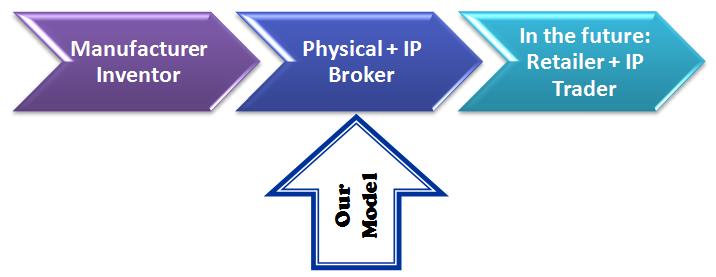Team:UTPrenuer/Project Description
From 2012e.igem.org
(→OUR BUSINESS MODEL) |
(→OUR BUSINESS MODEL) |
||
| Line 10: | Line 10: | ||
<div align="justify"> | <div align="justify"> | ||
| - | We aim to develop a business model that . | + | We aim to develop a business model that will allow Synbio to reach our country and solve problems all over the world, and this can be possible working as Physical and IP Brokers. <br> |
| - | <br> | + | |
<div align="center"> | <div align="center"> | ||
[[File:ourmodel.jpg]] | [[File:ourmodel.jpg]] | ||
Revision as of 22:49, 17 July 2012
|
Home |
BACKGROUND | PROJECT DESCRIPTION | FUTURE PLANS |
OUR BUSINESS MODEL
We aim to develop a business model that will allow Synbio to reach our country and solve problems all over the world, and this can be possible working as Physical and IP Brokers. We want to focus on the Regional market and in the future expand Internationally. To offer our service, we will contact the I+R Department´s Manager and thought them into us, providing solution for problems in fields such as food and energy, manufacturing, environment, health and medicine and other applications following the lead of iGEM's College tracks.
The service is valuable because we deliver biobricks, consulting and training. We will reach, acquire and keep customers through internet, direct contact, follow up, campaign, attractors and marketing.
Our offering could be defined and differentiated as new exceptional innovating product. Also, have on mind that SynBio has a good opportunity in an underdeveloped country because of the innovation and the good economic development in Panama.
The revenue will be generated by trading fees (commissions), retailing, consulting, following up + training + maintenance. And the profit margin depends on saving because there is no price for this service on the actual national market.
JUSTIFICATIONAfter carefully reviewing the economic indicators of our country, we decided that the business model of broker is best to adapt to the Panamanian economy. A part of our research was based on the paper: “Do Some Business Models Perform Better than others? A Study of the 1000 Largest US Firms” by Peter Weill, Thomas W. Malone, Victoria T. D’Urso, George Herman and Stephanie Woerner (MIT).
|
 "
"

